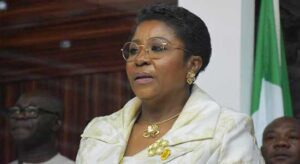
‘Sex-for-Marks’: Don advocates review of sexual harassment bill
A professor of Jurisprudence and International Law has advised the Federal Government to review the Sexual Harassment Bill to prevent the possibility of false allegations.
Prof. Wahab Egbewole of the Department of Jurisprudence and International Law, University of Ilorin, gave the advice on Tuesday in Ilorin.
He spoke at a sensitisation workshop organised by the Faculty of Social Sciences of the university.
Reports state that his paper presentation was entitled: “Ethical Issues Arising from the Sexual Harassment Bill (SHB) and career vulnerability among Lecturers in Nigerian Universities”.
He said that the bill, which is currently receiving the attention of the House of Representatives after being passed by the Senate, needed to be reviewed to correct some conspicuous loopholes.
Egbewole, who is also Senior Advocate of Nigeria (SAN), stressed the need for “something more fundamental” to be injected into the proposed law in order to prevent the possibility of false allegations.
“If not checked, this will turn lecturers to endangered species in the ivory tower as an unscrupulous female student may find it easy to level allegations against a given teacher for any reason,’’ he said.
The Law lecturer noted that the bill appeared not to take into cognisance the basic rules of punishment such as the need for reformation.
“Since armed robbers have been treated to capital punishment, has the punishment stopped the crime?’’ Egbewole asked.
He also observed that the Bill, when assented to by the President, would not only push lecturers to precarious situations but also erode the university autonomy.
He, therefore, urged the nation’s universities to evolve a means to make the commission of crimes difficult.
He advocated for a sexual harassment policy, which would spell out in clear terms, the rules of engagement between lecturers and students.
Egbewole also called for more consciousness on the part of society to ensure that educational institutions are not polluted by enacting a more pragmatic measure.
“The leadership of the Academic Staff Union of Universities (ASUU) has a lot of work to do to prevent the realisation of the clear and present danger, which the bill would constitute to lecturers when passed.
“The appearance of the National President of ASUU at the Senate, when the bill was being processed, was not good enough.’’
He said that he had expected the union to put together a committee of professionals, who would put serious and verifiable argument before the legislators.
According to him, the union should have also created a court of public opinion to let stakeholders know that the bill, when it becomes law, would create more problems than those it was targeted at reducing or exterminating.
He described the phenomenon of ‘Sex-for-Mark’ in the nation’s higher institutions as a disgrace, not only to such institutions but also to humanity.
The don urged academics to be more meticulous, circumspect and professional in their relationships with their students, especially those of the opposite sex, to avoid finding themselves in ugly situations.
He insisted that sexual harassment had the tendency of damaging society and its essence and must, therefore, be fought and exterminated.



